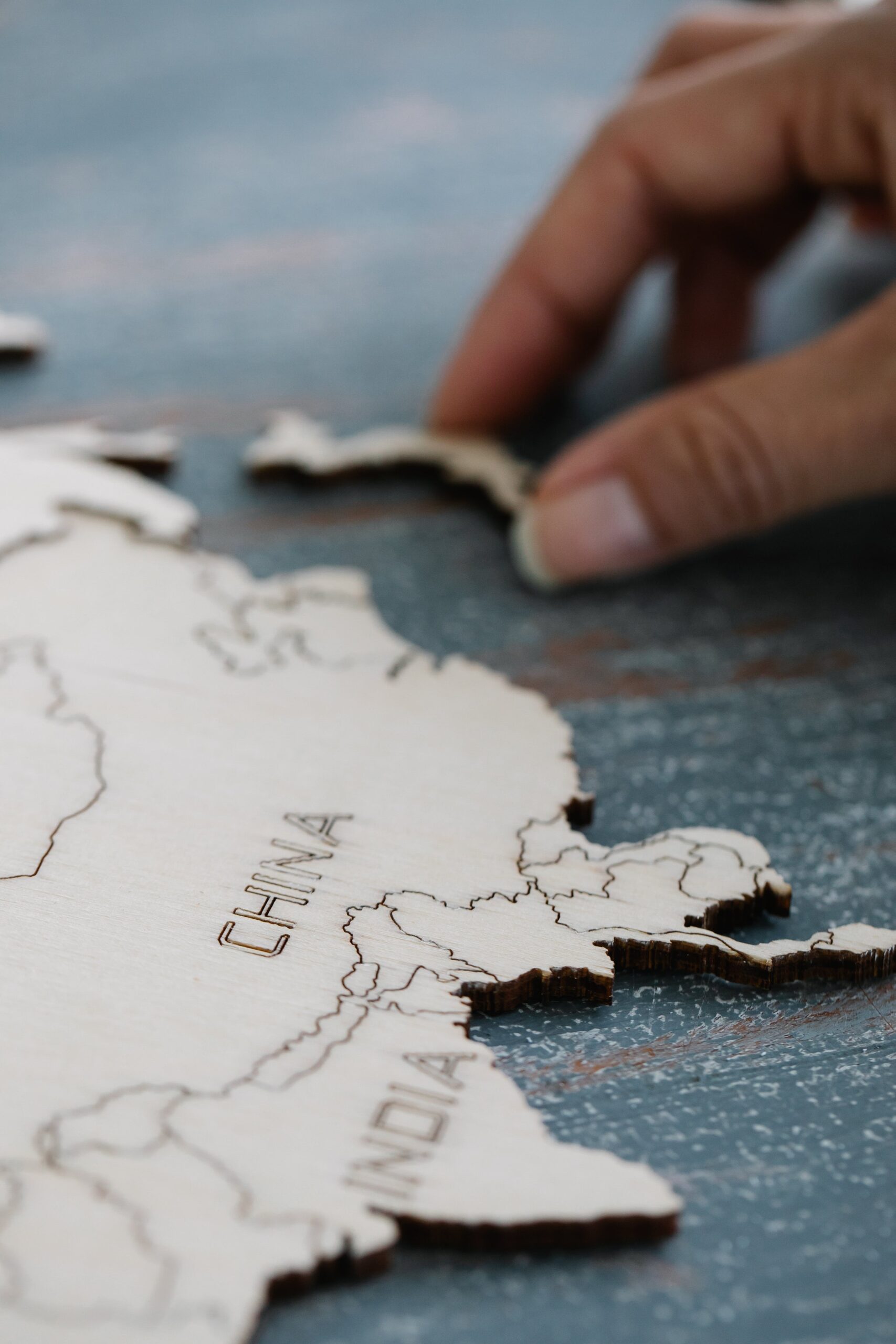 The Barbie movie was the talk of the entertainment industry all summer...
The Barbie movie was the talk of the entertainment industry all summer...
Just not in Vietnam, where it was banned.
In the movie, Barbie – played by Australian actress Margot Robbie – points to a cartoonish world map that most American viewers probably paid almost no attention to.
Vietnam, on the other hand, was furious. That's because the map includes a line of dashes stemming out of Asia... which the country claims was a reference to the infamous "nine-dash line."

China sparked outrage among its neighbors when it drew the nine-dash line on its most recent official standard map.
While there's a lot of debate about the exact meaning of the dashes, many believe they stake China's claim to islands and waters all around the South China Sea.
Now, the Barbie map only showed eight dashes. China's latest map actually has 10 dashes, and Taiwan often refers to it as the "eleven-dash line."
None of that mattered to Vietnam, though. According to American University, the country has banned at least two other movies over similar maps in the past three years.
Regardless of how trivial it might seem, the controversy around Barbie is more than just cinematic drama. It reflects deep-seated geopolitical tensions simmering in the Asia-Pacific region... and represents the feelings of most of China's neighbors.
Today, I'll take a closer look at what China's aggression toward its neighbors – and the world – means for the U.S. and Corporate America.
 Neighbors are looking elsewhere for alliances... and the U.S. is inviting them to our lunch table.
Neighbors are looking elsewhere for alliances... and the U.S. is inviting them to our lunch table.
This shift hit a high note in September, when the U.S. and Vietnam declared a Comprehensive Strategic Partnership.
This isn't just another diplomatic handshake... It's a big deal. Vietnam, traditionally closer to China, is now siding with the U.S.
These changes are stirring the geopolitical pot in Asia. The U.S.-Vietnam alliance in particular is a classic move in America's strategy book... "friendshoring." It involves shifting business and trade to countries that share similar values and political views.
Friendshoring is a smart way to spread out America's economic risks while tightening bonds with allies. By moving factories to friendly countries like Vietnam and Mexico, we reduce our supply chain's reliance on China. And we can build a network of trusty trade partners.
One standout example of friendshoring is Taiwan Semiconductor Manufacturing's (TSM) $40 billion chip plant, which it's setting up on American soil. It's a bold move from a company in China's neighborhood... showing that the U.S. charm offensive is working.
This investment is a big thumbs-up for U.S. tech as well. It will boost America's position as a tech leader while dialing down our dependence on overseas production.
 But it's not just about making friends and moving factories...
But it's not just about making friends and moving factories...
The U.S. is playing a deeper game.
These moves aren't just good for international relations. They're smart for business and profits, too. By winning over China's neighbors and former allies, America is solidifying its role as the global trade and production hub.
Countries worried about China's expanding influence are now looking to the U.S. for stability and partnership. This shift is reshaping the global economic landscape.
The approach is twofold. In terms of the economy, the U.S. is dangling the carrot of its massive market and tech leadership. Countries are jumping at the chance to do business with a global powerhouse.
On the diplomatic front, the U.S. is all about building trust and opening dialogues.
While China continues to step on its neighbors' toes, the U.S. is developing relationships with those same countries. In 2024, the U.S. government is expected to spend a record $1.2 billion on economic, development, and security assistance for nations in Southeast Asia.
 So-called 'experts' love to talk about how China's economy is taking over the world...
So-called 'experts' love to talk about how China's economy is taking over the world...
As I explained last week, these comments were never backed by legitimate data. Our research shows that Corporate America generates more economic profit than the entire rest of the world combined.
China's continued aggression toward other countries is only going to hurt its own potential. The U.S. is making moves to assure its economic dominance for decades to come. Our growing network of allies will help secure our supply chains and open up new markets.
For investors and market watchers, this is a green light.
Subscribers to our monthly stock and bond newsletters know that almost all of our picks are based in the U.S. Despite short-term recessions and sometimes over-exuberant valuations, Corporate America remains the best place for your money in the long term.
Wishing you love, joy, and peace,
Joel
November 17, 2023



 The Barbie movie was the talk of the entertainment industry all summer...
The Barbie movie was the talk of the entertainment industry all summer...



